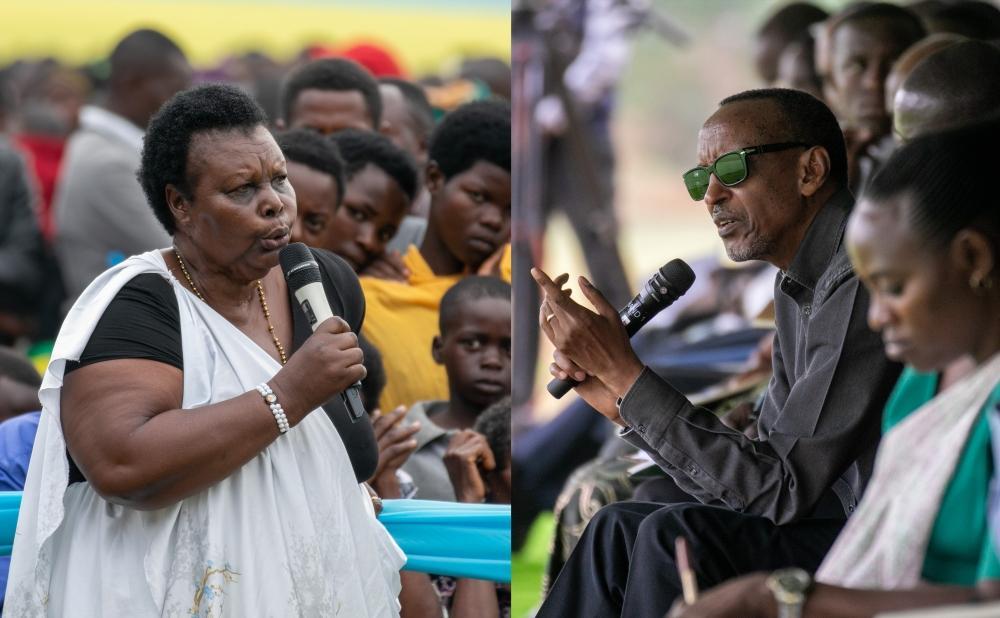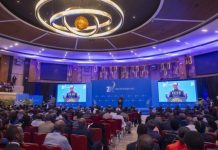Marie-Louise Murekatete
Africa-Press – Rwanda. True leadership begins not in power, but in presence in walking beside those we serve, listening before leading, and governing through understanding.
There is a quiet but growing distance between those who hold power and those who live under its decisions.
Across nations, citizens wait for hours to access basic services while their leaders glide through convoys of privilege. Policies are crafted in polished rooms far from the dust and noise of everyday life. Reports speak of “growth,” yet families still count coins to afford dinner. This is not only a political problem; it is a human one. It is the widening space between power and people.
Real leadership begins where statistics end in the lived experiences of citizens. Before anyone seeks to lead, they must first learn to listen. Before they govern, they must walk among those they will serve not for the cameras, not as a performance, but to truly understand what life demands of those who work, struggle, and hope under their care.
What citizens truly expect
What people expect from their leaders is not extravagant; it is deeply human. They want fairness, dignity, and opportunity. They want jobs that sustain them, healthcare that heals them, schools that truly educate, and safety that allows them to rest in peace. Citizens do not demand perfection; they demand presence.
When leaders celebrate economic success while citizens can barely afford basic needs, it exposes a painful gap between perception and reality. Prosperity that never reaches ordinary families is not prosperity at all. The truest measure of economic growth is not in GDP figures – it is in whether a worker’s wage can feed their family and give them dignity.
Rwanda’s own governance philosophy captures this truth in simple but profound words: “Umuturage ku Isonga” – the citizen first. It is more than a slogan. It is a moral compass reminding every public servant that the heartbeat of leadership is the ordinary Rwandan citizen. The system itself says it clearly – the citizen must come first. And even if a leader fails to live up to it, that failure is personal, not systemic. The principle stands firm: no one can claim to lead while forgetting those they serve.
After all, how can one deny others the very basic needs they themselves depend on to live? Food, shelter, health, and education are not privileges to be granted at convenience; they are shared necessities that bind us together as human beings. When leaders recognize that the needs of citizens are the same as their own, governance ceases to be about hierarchy and becomes about humanity.
During moments of crisis, whether a pandemic, disaster, or economic shock, citizens do not expect leaders to be infallible. They only ask for honesty and compassion. The most effective leaders are those who stand with their people in uncertainty, who admit what they do not know, and who share the burden of fear and hope alike. Leadership is not the absence of weakness; it is the presence of empathy.
The danger of disconnection
When power grows distant from the people, nations begin to lose their balance. Leaders insulated by privilege may no longer see or feel what citizens experience daily. Surrounded by advisers, donors, and carefully managed narratives, they risk becoming prisoners of their own comfort.
History reminds us that this disconnection breeds instability. When people feel unheard, they either withdraw in silence or turn to anger. Trust erodes. Democracy weakens. Populists rise not because they are better, but because they sound closer to the people’s pain. Many political collapses begin not in crisis, but in complacency when citizens quietly stop believing that their leaders care.
Leadership through understanding
To rebuild that bond, we must rethink what it means to lead. Leadership should not be an escape from ordinary life. It should be an immersion in it. Before assuming high office, every leader should spend time living on an ordinary income, taking public transport, and relying on public hospitals and schools. Only then can they feel, not imagine, the realities they are called to improve.
This is not about symbolism or spectacle; it is about wisdom. One cannot govern people they do not understand. Policy made from reports alone is blind policy. The leader who listens to a teacher, a farmer, or a street vendor gains insights no economic model can offer. True understanding is born not from distance, but from proximity.
Leadership is, at its core, an act of service beyond self. It is not about the pursuit of power but the acceptance of responsibility. It requires humility the courage to admit ignorance and the strength to seek truth in the lives of others. Great leaders are not those who command the loudest, but those who listen the deepest.
A new kind of leadership
We need to redefine success in leadership. It should not be measured by titles held or projects launched, but by how deeply a leader remains rooted in the people they serve. To lead is not to stand above, but to walk beside.
Empathy must no longer be dismissed as weakness, and listening must not be mistaken for indecision. The most transformative policies are born from the simplest conversations a mother speaking of food prices, a youth sharing their dream, or a farmer explaining their struggle. These are the seeds of wise governance.
Let us celebrate leaders who stay close to their communities, who visit unannounced, who ask questions not for publicity but for truth. Let’s build systems that make listening part of governing through citizen assemblies, participatory budgeting, and open town halls that are genuine, not staged. The more leaders listen, the more wisely they will lead.
Rebuilding the bridge
The survival of democracy depends on closing the gap between power and people. Citizens must see leaders who understand their realities, not from reports, but from shared experience. Authority must be seen again as a trust not a privilege.
It is time for leadership that walks, listens, and serves. For leaders who do not rule from towers, but who stand shoulder to shoulder with the people. For a politics that is not about control, but about care because the heart of leadership is not power but presence. The soul of governance is not command. It is compassion. And the true measure of leadership, the one that will outlive every term and title is how closely it walks with the people.
Source: The New Times
For More News And Analysis About Rwanda Follow Africa-Press






